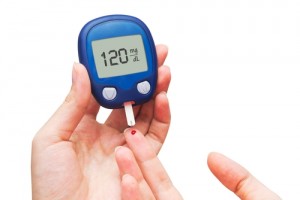 Researchers from the Cleveland Clinic reports that certain drugs used to treat diabetes may also be affecting cancer risks in women. A certain drug that treats type 2 diabetes may also lower cancer risk by up to one third. Another type of diabetes drug may also increase the cancer risk, according to a study published in the Dec. 5 issue of the journal Diabetes, Obesity and Metabolism.
Researchers from the Cleveland Clinic reports that certain drugs used to treat diabetes may also be affecting cancer risks in women. A certain drug that treats type 2 diabetes may also lower cancer risk by up to one third. Another type of diabetes drug may also increase the cancer risk, according to a study published in the Dec. 5 issue of the journal Diabetes, Obesity and Metabolism.
The researchers analyzed the data from 25,600 men and women with type 2 diabetes to determine how two groups of diabetes drugs may affect cancer risk. The diabetes drugs in question included “insulin sensitizers”. These drugs lower blood sugar and insulin levels by increasing the body’s response to insulin. The other group included “insulin secretagogues”, drugs which lower blood sugar levels by stimulating beta cells in the pancreas to produce more insulin.
The researchers found out that women who use insulin sensitizers also reduced their cancer risk by up to 21 percent compared to using insulin secretagogues. More particularly, an insulin sensitizer known as thiazolidinedione was associated with up to a 32 percent decrease in cancer risk among women when compared to using an insulin secretagogue called sulphonylurea. The effects have so far been only seen in women. There is no significant difference between cancer risks and the use of the mentioned diabetes drugs in men.
According to Dr. Sangeeta Kashyap, an endocrinologist and associate professor of medicine at Cleveland Clinic’s Endocrinology and Metabolism Institute, “What this study shows us is that using insulin secretagogues to increase insulin production correlates with an increased cancer risk in women with type 2 diabetes.”
“By contrast, insulin sensitizers cut insulin levels and can decrease cancer growth. So, clearly, when prescribing anti-diabetic medications, it’s important to consider the impact a drug has on fueling cancer growth,” Kashyap, the lead author of the study, further added.
In general, people suffering from diabetes experience higher rates of cancer diagnosis as compared to the general population. While the study indicated the association between types of diabetes drugs with cancer risks, it did not establish the cause-and-effect relationship.
Source: WebMD
Tags: cancer risks, diabetes and cancer, diabetes drugs, Diabetes News, diabetes treatment